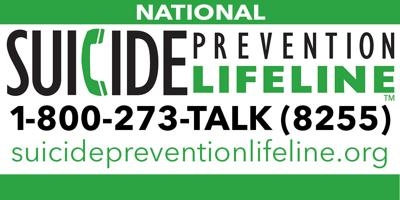Suicide
Suicide

At INTERFACE Referral Service, we focus on connecting members of our communities with mental health providers. We also value the importance of learning about the mental health conditions that may be affecting your thinking, feeling, behavior, or mood.
Therefore, we have created "Mental Health Topic Pages". The majority of our topic pages will direct you to Network of Care Massachusetts! Network of Care Massachusetts has a library database of over 30,000 fact sheets and articles. Topics on behavioral health issues are written by leading experts and organizations in their fields.
Suicide
Many people have fleeting thoughts of death. Fleeting thoughts of death are less of a problem and are much different from actively planning to try suicide. Your risk of suicide is increased if you think about death and killing yourself often, or if you have made a suicide plan.
Most people who seriously consider suicide do not want to die. Rather, they see suicide as a solution to a problem and a way to end their pain. People who seriously consider suicide feel hopeless, helpless, and worthless. A person who feels hopeless believes that no one can help with a particular event or problem. A person who feels helpless is immobilized and unable to take steps to solve problems. A person who feels worthless is overwhelmed with a sense of personal failure.
Source: Network of Care Massachusetts
To learn more, visit these Network of Care Resources:
Warning Signs of Suicide in Adults
